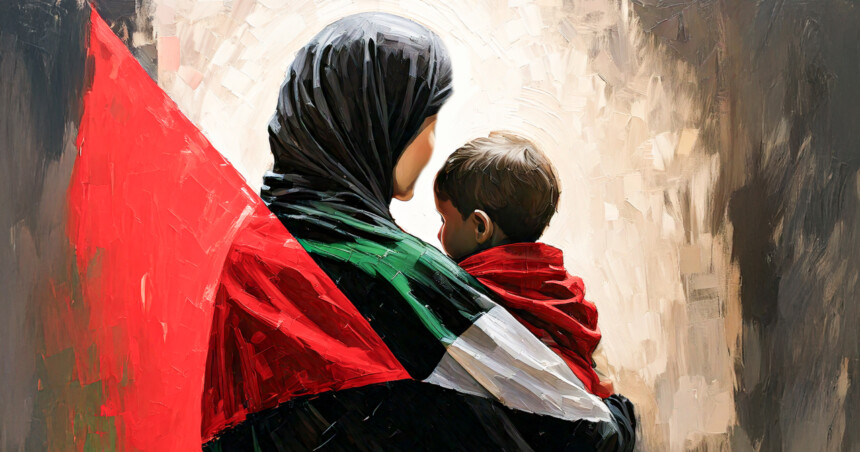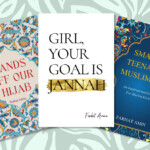بسم الله الرحمن الرحيم
During Ramadan, a friend of mine came over to have iftar with me and my family. She brought us a bouquet of beautiful, colourful roses.
When my husband placed them in a vase, our six-year-old son noticed that one of the roses was wilting, its stem had snapped. He started to cry.
A few days later, I asked him why he had cried when he saw the broken rose, and his answer was astonishing.
He said,
Because I miss it. I loved it. I thought it was you who died.”
SubhānAllah. A pure heart feels more deeply, it is more sensitive to the blessings of Allah.
Every child is born in a state of fitrah, which Shaykh Ibn Taymiyyah (rahīmahullah) defined as:
…the natural state of the human being, in accordance with which he is created.
It is the innate disposition that directs a person towards recognising Allah as His Lord and Master, and towards adhering to the moral and ethical values that are consistent with His divine commandments.” [1]
In this pure state, a person is inclined towards tawhīd, goodness, beauty, perfection, truth, loyalty, and justice, and he/she has an aversion to betrayal, injustice, and evil.
Imam al-Sa’dī (rahīmahullah) explained how.
Allah has instilled in the hearts of all people an inclination towards all the rulings of Islam, both outward and inward, so they are naturally inclined to love truth and give precedence to it. This is the true nature of man.” [2]
Physical and psychological murder!
As a child grows up, this fitrah becomes corrupted by external influences that don’t align with Islamic teachings, such as the beliefs of the parents, culture, environment, media, and education. It also becomes polluted by base desires and sins.
In this innocent and vulnerable state, children in Gaza are experiencing the worst, most depraved atrocities. They are being murdered physically and psychologically.
Only hearts that are dead can commit such evil.
For Gazan children, a recent report found that,
96 per cent of them feel that their death is imminent and almost half want to die as a result of the trauma they have been through.” [3]
The Palestinian Centre for Human Rights (PCHR) has “documented severe and horrifying injuries sustained by children in Gaza due to Israeli bombings and massive explosions,” including “the loss of limbs, severe facial disfigurement caused by direct strikes or intense burns, and spinal injuries leading to complete paralysis or permanent mobility impairments.” [4]
The PCHR has also reported that,
…severe brain injuries have affected children’s cognitive and behavioural abilities, while eye injuries leading to partial or complete blindness have significantly hindered their ability to learn and engage in daily activities.” [4]
As a number of experts have repeatedly warned,
For children in Gaza, there’s no ‘post’ in post-traumatic stress disorder. The trauma is constant and relentless.” [5]
The Palestinian writer, Ghassan Kanafani, once wrote,
I wish children didn’t die.
I wish they would be temporarily elevated
to the skies until the war ends.
Then they would return home safe,
and when their parents would ask them,
where were you? they would say,
we were playing in the clouds.
His poem beautifully captures a parent’s natural instinct and desire for their children to always be in a place of peace and safety.
We try our best to shield them from harm and suffering. How about parents in Gaza? How can they protect their children in a place where everywhere is a potential death zone?
Soul-crushing to be unable to protect your children
No place is safe, not even their own homes.
I remember reading about a father calling out to his dead son to forgive him for not being able to protect him, for giving him permission to go out to ride his bike.
It is soul-crushing for parents not to be able to protect their children, not to be able to provide for their starving children, not to be able to alleviate their pain, not to be able to take care of them fully, or comfort them, because they themselves are falling apart, struggling to stay sane.
When I write the names of my children on the labels of their school uniforms, I remember the parents who are writing their children’s names on their children’s limbs — so that, if they are killed, they could be easily identified.
My heart has no room left for more pain
In his Eid message to the Muslim world, the Palestinian journalist Abu Bakr Abed wrote,
My heart has no room left for more pain.” [6]
Shaykh Abu Mālik (hāfidhahullah), a scholar in Madina, mentioned during an online lecture how there are aspects of īmān and knowing Allah that can only be learned through hardship, tribulation, and poverty. [7]
When you are going through a difficult situation, you realise that only Allah can help you, only He has the power to relieve you of your suffering, only He understands what you’re going through, only He can guide you and keep you steadfast through your calamity.
Your heart seeks refuge with Allah, increasing in īmān and tawakkul. Your attachments to worldly means fall away. It’s just you and Allah. And this lesson is priceless, even though you may have to go through immense pain to understand it.
Allah (jalla wa ‘ala) says,
وَلَنَبْلُوَنَّكُم بِشَىْءٍۢ مِّنَ ٱلْخَوْفِ وَٱلْجُوعِ وَنَقْصٍۢ مِّنَ ٱلْأَمْوَٰلِ وَٱلْأَنفُسِ وَٱلثَّمَرَٰتِ ۗ وَبَشِّرِ ٱلصَّـٰبِرِينَ (156) ٱلَّذِينَ إِذَآ أَصَـٰبَتْهُم مُّصِيبَةٌۭ قَالُوٓا۟ إِنَّا لِلَّهِ وَإِنَّآ إِلَيْهِ رَٰجِعُونَ
And We will surely test you with something of fear and hunger and a loss of wealth and lives and fruits, but give good tidings to the patient, Who, when disaster strikes them, say, ‘Indeed, we belong to Allah, and indeed to Him we will return.'” [8]
These āyāt are a cure for any illusions we may have regarding the reality of this transient life. This life is not Paradise. It is the abode of tests and trials.
Imam al-Sa’dī explained how “the purpose of tests is to purify, not to destroy”, and to “distinguish the sincere from the liars, and the impatient from the patient.”
He wrote,
As for the one whom Allah enables to be patient when calamities occur, he controls himself and stops himself developing any resentment that could be reflected in his words or deeds.
He seeks reward for it from Allah, and he knows that the reward he will attain for his patience is greater than the calamity that has befallen him.
In his case, the calamity turns into a blessing because it becomes a means of attaining something better and more beneficial for him than what he lost.” [9]
Tests and trials raise the level of a believer
The Prophet ﷺ said,
The greatest reward comes with the greatest trial.” [10]
al-Fudayl ibn Iyād (rahīmahullah) said,
As long as people are doing fine, their true nature is concealed, but when calamity strikes, their true natures are revealed, so the believer resorts to his faith and the hypocrite resorts to his hypocrisy.” [11]
We see that the lives of our brothers and sisters in Palestine are falling apart, their bodies and voices tremble with grief and exhaustion as they hug, or sit close to, the bloodstained shrouded bodies of their loved ones.
In this heartbreaking situation, we hear them say statements of belief from the Qur’ān and Sunnah, words that were revealed over 1,400 years ago. They are living these words!
Their strongest, most effective weapon against the Israeli occupation and its supporters is their faith. As the Israelis continue their mission of mass destruction, it is clear that they haven’t been able to destroy their faith or sumūd (i.e. resilience, steadfastness), and this is truly awe-inspiring to both Muslims and non-Muslims throughout the world.
This is the power of true faith.
Sa’d ibn Abī Waqqās reported,
I said, ‘O Messenger of Allah, which people are tested most severely?'”
The Messenger of Allah ﷺ replied,
“They are the prophets, then the next best, then the next best.
A man is put to trial according to his religion. If he is firm in his religion, his trials will be more severe. If he is weak in his religion, he is put to trial according to his strength in religion.
The servant will continue to be put to trial until he is left walking upon the Earth without any sin.” [12]
Truths are often understood through their opposites
We have to experience dark moments in our lives to appreciate the light of truth and guidance.
We have to go through illness to understand the blessing of good health. Death makes us value life.
Similarly, we have to taste the bitterness of the Dunya to long for the perfect life in Paradise. [11]
I asked my son,
What is a happy life?”
He replied,
Jannah.”
Source: Islam21c
Notes
[1] Majmū’ al-Fatāwa
[2] Tafsīr al-Sa’dī (English), vol. 7, p.309
[6] https://youtu.be/gR3YrCWlz90
[7] Diseases of the Heart: Cures and Remedies
[8] al-Qur’ān, 2:155–156
[9] Tafsīr al-Sa’dī (English), vol. 1, p.184
[10] Sunan Ibn Mājah, 4,031; https://sunnah.com/ibnmajah:4031
[11] https://islamqa.info/en/answers/35914/the-wisdom-behind-calamities
[12] Sunan al-Tirmidhi, 2,398; https://sunnah.com/tirmidhi:2398








SubhānAllah… this article pierced my heart. The story of the child and the rose, and the heartbreaking realities faced by the children of Gaza, are reminders of how sacred innocence is — and how much we need to protect it.
As an educator at MeeM Academia, an online Islamic institute dedicated to nurturing children’s fitrah through Quran, Islamic values, and loving mentorship, I’m reminded of the deep responsibility we carry. We strive to raise a generation who not only read the Quran, but live by it — with faith, resilience, and hope in the promise of Jannah.
May Allah protect the innocent, grant sabr to those tested, and accept from us all. Jazakum Allahu Khayran for such a powerful reminder.
From the river to the sea P\alestine will be free.